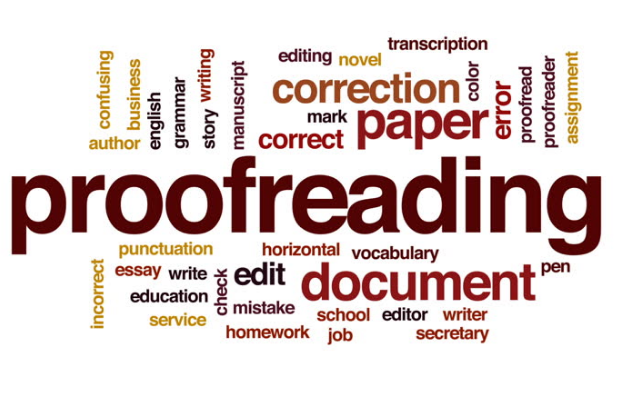One of the most commonly misused or confused sets of homophones is  they’re, there and their.
they’re, there and their.
They’re is a contraction – the combination of two words – meaning they are. (Example: They’re going to go home early.)
Their is the possessive – shows ownership – form of the word them. (Their reports are always so beautifully written.)
There indicates location, an event or happening. (There was a hurricane.)
Does it Matter?
You’ve probably read a report and – without looking hard -- found a silly typo or grammatical error. Sometimes finding one typo sends us on a quest to find more typos.
In other words, your audience has become distracted – even possibly quit listening – to your message, and has started hunting for typos, which is the last thing you want to happen.
For some people, such typos and errors can subconsciously symbolize:
- Carelessness (If they don’t care about how they’re written this proposal, will they care about delivering the service they promised?),
- Unprofessionalism (If this is how careless they are with a simple proposal, what will they be like during the implementation of this project?)
- Lack of experience or expertise (If they can’t even proofread their own work, do they really know what they’re talking about?)
Certainly, nothing any of us would ever want people to think of us.
Their, There and They’re: A Simple Test
Apostrophes either show possession or contraction.
So, whenever you see the word they’re, simply substitute the word with “they are.” If the sentence still makes sense, you’re (or: you are) using the right form.
As in the scenario above, replacing the they’re with they are in the sentence, “They’re going home early” still makes sense when changed to “They are going home early.”
When you see there, ask yourself if you’re referring to a place or event. If, for example, you had written, “there going home early.” Are you referring to a place? Something that happened? No. So, in this instance, the word there is being misused and has been confused with they’re.
A Strategy for Catching Writing Errors
One of the things you “have” is your professional image, aka your credibility. People are evaluating us all the time based on a myriad of things: how we speak, how we dress, how we act – and yes, how we write. Right or wrong, these elements are used to evaluate whether we’re credible, whether we’re a subject matter expert, and whether we’re professional.
So how can you catch these simple writing errors and protect your professional image? Here are a few strategies:
- Take the Time to Learn. Even if you only learn one or two tricks towards improving your writing – such as the difference between their and they’re – you’re well on your way towards creating a more polished image.
- Don’t write on deadline. When a report or email is important or sensitive, some people may feel so daunted by the challenge of writing the report that they procrastinate. Don’t fall into this trap. Why? Working on a report or document at the last minute means you’re writing under deadline – you’ll not only be rushed in building the report (which can lead to incomplete information or explanations), but you’ll also be rushed in proofreading the report… and inevitably miss simple typos or errors.
- Put it aside. One of the best proofreading strategies I’ve ever learned is to put a document aside for at least a few hours – even a whole day if I can. This prevents my brain from automatically “filling in” what I “meant” to say, and gives me the best opportunity to truly see what is written on the page.
- Have someone review your work. Everyone can benefit from having “a second pair of eyes” review their work. Content reads differently to other people, and they will see writing errors you have missed – even after you’ve proofread your own work.
- Use technology to your advantage. While not always foolproof (especially with unique industry jargon), Word’s grammar and spell checker or systems like Grammar.ly will catch the most common grammatical issues that are the most likely to “leap off the page” to your readers.
Bottom Line: While there is no foolproof way to catch every possible writing error, all writers have their tricks for finding the grammar mistakes they’re struggling with. Pick from our strategies, and adopt the one that works for you!
Want to learn more about being a better writer or editor? Check out our books (Amazon) and courses.
about any of our products or services.
 Visit us
San Francisco Bay Area
Visit us
San Francisco Bay Area
 Mail us
natasha@adcomdesigns.com
Mail us
natasha@adcomdesigns.com
 Call us
(510) 655-6477
Call us
(510) 655-6477

